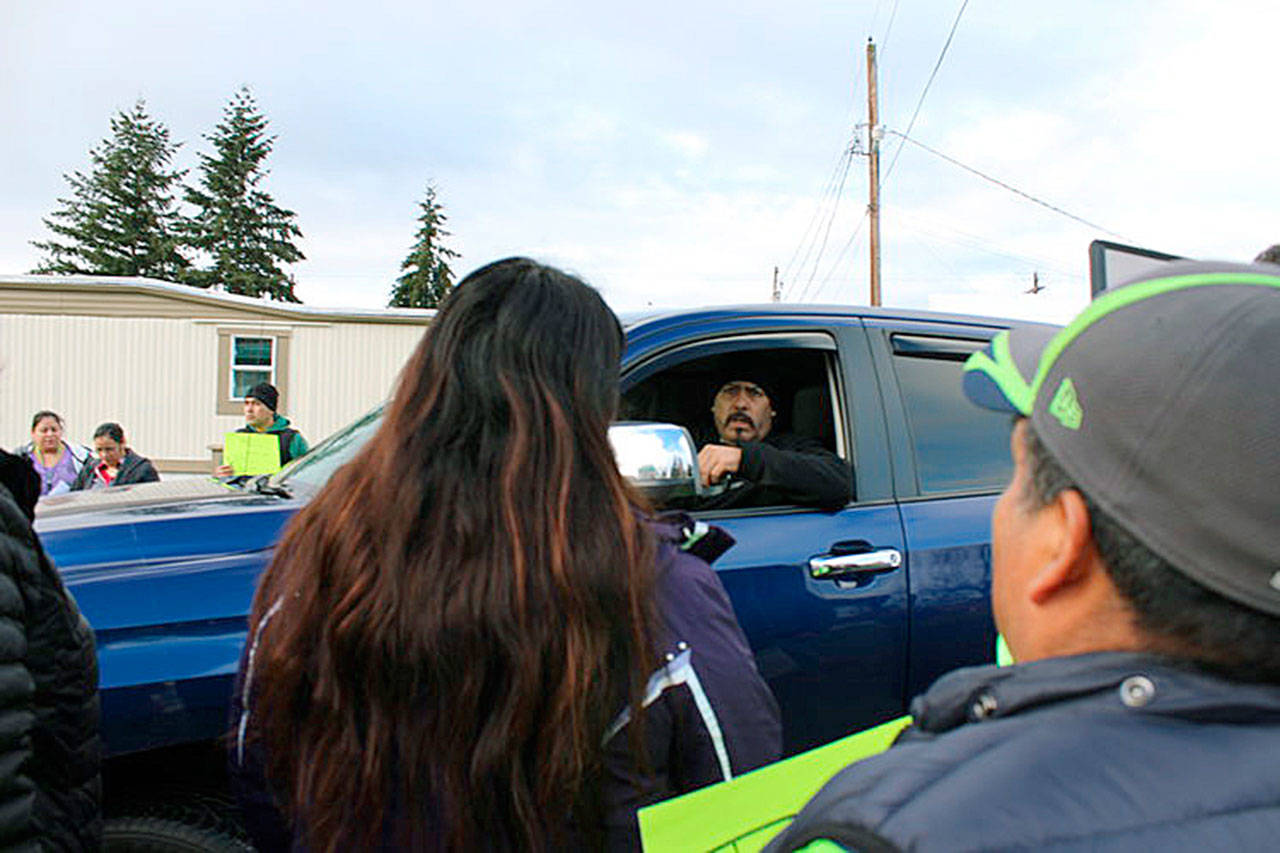Twenty-three fed-up tenants of Laurelwood Mobile Home Park in south Auburn joined advocates from the Washington Community Action Network (CAN) last Friday morning to hand-deliver a demand letter to its resident manager, Jose M Guardado, whom they claim has been negligent and abusive.
The letter, addressed to Andrew Cho, who is the registered agent listed on the property, but given to Guardado as he backed out of his driveway shortly after 10 a.m., demanded a sit-down meeting with tenants to discuss alleged disparities in utilities billing, and to end to what they claim has been a pattern of hostile behavior.
“I’m just the onsite manager,” Guardado responded, advising tenants to contact his bosses.
Tenants gave Cho until Monday, Dec. 10 to respond.
“We’re here because we’re victims of abuse,” said Jose Laris, who has lived in the park for about eight years. “There’s a lot of abuse for everyone, for simple things. There’s overcharges of water, some of our neighbors are paying more than $400 in water for one month. We think this is unfair, there’s discrimination, they charge everyone different.”
“I also get overcharged for water, but not as much as these folks,” said tenant Marty Thomas, indicating her Latino neighbors. Thomas is white.
Dozens of tenants told CAN they had been subjected to verbal and physical abuse, in addition to getting inconsistent water bills, garbage dumped in their yards and shoddy maintenance practices.
Ariana Vallejo, a community organizer with Washington CAN, explained how her organization got involved.
“These people are struggling with high costs of water, some of them are paying almost $400 a month, they are dealing with discrimination. We know some other tenants from the park that are non-Latinos that are not paying as much for the water,” Vallejo said. “When someone is paying like $80, the other person is paying $20. They are also dealing with threats.”
“These folks were not organized a month ago, and when they realized they were all dealing with the same stuff, they decided to rise up,” said Erin Fenner, communications director for Washington CAN. “That’s kind of where our power is, in the people.”


